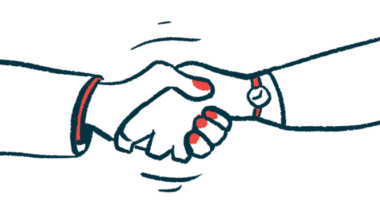It’s important to learn how to be your own advocate
Advocating for yourself is a skill that might take some time — and tears

A rare illness like Cushing’s disease can be difficult to diagnose. When searching for a diagnosis back in 2018, I dealt with myriad dismissals: “You just have anxiety.” “Lose more weight and you’ll be fine.” “It’s all in your head.”
I’ve heard from many members of the Cushing’s community who’ve had similar responses. It’s sadly very common to be dismissed, misdiagnosed, or ignored.
Learning to advocate for myself was a skill that took a lot of time and — let’s be honest — a lot of tears. When you see a doctor, you assume they know what they’re talking about. As much as I want to trust the professionals, that doesn’t mean every single doctor is the right fit or knows absolutely everything about you and what you’re going through.
With a disease like Cushing’s, advocating for yourself becomes a full-time job. So, following many years of trial and error, I’ll break down what worked for me and helped me to push for my diagnosis.
Preparing for appointments
I went into my first appointment assuming that my symptoms would be enough for a diagnosis. Boy, was I wrong. I needed proof of my symptoms and everything that I was dealing with. So I started a binder. It contained all of my lab results related to Cushing’s disease (such as ACTH, cortisol, testosterone, and progesterone) as well as a list of my symptoms and pictures, mostly before-and-after photos that showed the acceleration of my striae, a timeline of my weight gain, and the difference in my hair before and after Cushing’s, particularly the hair loss.
Every time I received any imaging or bloodwork, into the binder it went. It helped so much to be able to show up to an appointment with complete proof of everything that I was going through. It made my case much more believable and usually would lead to some testing, at least.
Speaking up
If a doctor says, “It’s just anxiety” or “Lose some weight,” it’s important to have rebuttals ready. For instance, when I couldn’t lose weight, I’d come in with a dietary log and proof that I exercise, and then I would say something like, “Here is my diet, exactly like my nutritionist recommended. I do yoga four times a week and cycle once a week as well. I’m unable to lose weight, so something else might be wrong. What would you recommend?” Having these rebuttals helped me feel in control. It’s hard not to get emotional when you feel dismissed, but keeping a level head helps you get your point across better.
It’s also important to know exactly what you want from your doctor. With Cushing’s disease, I think it’s important to ask for cortisol testing and a 3T pituitary-based MRI. I also believe 24-hour urine tests and midnight salivas, as well as hormonal bloodwork are a good idea. If you find a doctor who listens, that’s just the first step. It’s important to be ready for step two: proving you have the illness.
Knowing when to try something new
Unfortunately, not every doctor is the right doctor. If you’ve come prepared, used your rebuttals, and argued your case and the doctor still has no interest in testing, it might be time to find a new doctor. Cushing’s disease is a lifelong illness, with constant bloodwork, medication, and even surgery. Having a doctor who has your back and will support you through all that is so vital. If a doctor isn’t willing to listen and doesn’t believe you have the disease, he’s unlikely to advocate for you and won’t support your treatment. It’s hard, but sometimes you have to let go.
Advocating for yourself is scary and difficult, especially when you’re feeling sick. If you know something is wrong, don’t give up. Find the right doctor for you, keep up with your binder, and trust how you feel.
You can follow my journey on TikTok and YouTube.
Note: Cushing’s Disease News is strictly a news and information website about the disease. It does not provide medical advice, diagnosis, or treatment. This content is not intended to be a substitute for professional medical advice, diagnosis, or treatment. Always seek the advice of your physician or other qualified health provider with any questions you may have regarding a medical condition. Never disregard professional medical advice or delay in seeking it because of something you have read on this website. The opinions expressed in this column are not those of Cushing’s Disease News or its parent company, Bionews, and are intended to spark discussion about issues pertaining to Cushing’s.








Comments